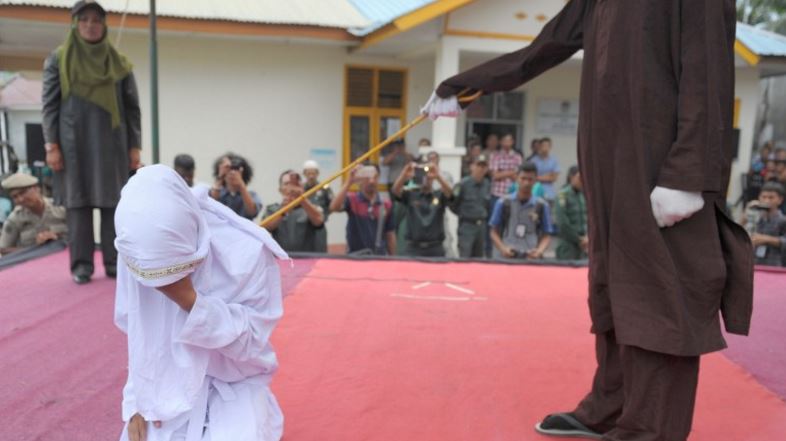As the only region in Indonesia allowed to implement sharia law, the government of Aceh has frequently been criticized by human rights activists, both inside and outside the country, for punishing individuals who committed violations of sharia law, ranging from adultery to homosexual sex, by forcing them to stand on a public stage and be caned in front of a cheering crowd.
https://www.youtube.com/watch?v=zM33nfXKXs4
The new, recently elected governor of Aceh, Irwandi Yusuf, has said that he would put an end to the public canings. Not due to concerns about human rights, but because it’s creating a PR problem for Indonesia that’s affecting the country’s ability to attract foreign investment.
Irwandi and his vice governor, Nova Iriansyah, recently met with President Joko Widodo in Jakarta and apparently the president discussed the negative perception being created by frequent international headlines news stories and photos about the canings in Aceh.
“There’s the real perception and the one from outside the country, which is is not very good. Because of that, Pak President asked how the government of Aceh could explain that it was not like how it was being perceived,” Nova at the Presidential Palace on Tuesday as quoted by Okezone.
But this does not mean that the Aceh government will stop the use of caning as a punishment. According to the vice governor, they will simply change the “technical implementation” of the law so that the corporal punishment is carried out privately, inside a prison with only a small audience, instead of in public for all (including the media) to see.
Nova said that the purpose of having the canings in public was justified as it created a deterrent effect, but that it had to be weighed against considerations about bringing foreign investment to Aceh, which is important to the region’s development. He said he hoped the change would prevent stories about future canings from going viral on social media and creating more negative perceptions amongst investors.
While carrying out canings in private at least removes the cruelty of public humiliation from the punishment, it does nothing to change the root of activists’ criticism of Aceh’s justice system, which is that beating somebody for a perceived moral crime is a fundamental violation of human rights according to international law.




